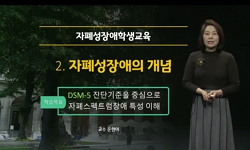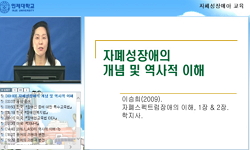Purpose: This study investigated the ability of children with ASD, including the minimally verbal subgroup, to perceive angry, neutral, and happy prosody in low-pass filtered speech when provided with a structured training paradigm. Methods: 13 child...
http://chineseinput.net/에서 pinyin(병음)방식으로 중국어를 변환할 수 있습니다.
변환된 중국어를 복사하여 사용하시면 됩니다.
- 中文 을 입력하시려면 zhongwen을 입력하시고 space를누르시면됩니다.
- 北京 을 입력하시려면 beijing을 입력하시고 space를 누르시면 됩니다.
The Perception of Affective Prosody in Children with Autism Spectrum Disorders and Typical Peers
한글로보기https://www.riss.kr/link?id=A108779160
- 저자
- 발행기관
- 학술지명
- 권호사항
-
발행연도
2017
-
작성언어
-
- 주제어
-
KDC
510
-
자료형태
학술저널
-
수록면
128-141(14쪽)
- 제공처
-
0
상세조회 -
0
다운로드
부가정보
다국어 초록 (Multilingual Abstract)
Purpose: This study investigated the ability of children with ASD, including the minimally verbal subgroup, to perceive angry, neutral, and happy prosody in low-pass filtered speech when provided with a structured training paradigm.
Methods: 13 children with ASD and 21 TD children completed the experimental task and two additional measures (nonverbal cognitive abilities, social responsiveness deficits) for regression analyses.
Results: The ASD group recognized prosodic conditions significantly less accurately than the TD group, and took significantly longer times to recognize all sentences compared to the TD group. Angry prosody was consistently the most difficult to recognize across groups. Nonverbal cognitive abilities is a significant predictor variable for successful recognition of neutral and happy prosody; although low nonverbal cognitive skills do not preclude minimally verbal children with ASD from accurately perceiving affective prosody.
Conclusions: The present study shows it is possible for minimally verbal children with ASD to successfully participate in experimental research using judgment tasks when provided with appropriate training.
목차 (Table of Contents)
- INTRODUCTION
- METHODS
- RESULTS
- DISCUSSION
- INTRODUCTION
- METHODS
- RESULTS
- DISCUSSION
동일학술지(권/호) 다른 논문
-
Phonological Skills in Korean-English Bilingual Children: Phonetic Inventory and Segmental Accuracy
- 한국언어재활사협회
- Jae-Hyun Kim
- 2017
-
Aging Effects and Working Memory in Garden-Path Recovery
- 한국언어재활사협회
- Hyunsoo Yoo
- 2017
-
Exploring the Effects of Narration and Pictures on Learning for Sudents with Reading Deficits
- 한국언어재활사협회
- Sunjung Kim
- 2017
-
Second Language Proficiency and Maze: Marathi-English Bilinguals
- 한국언어재활사협회
- Rahul Chakraborty
- 2017




 스콜라
스콜라



